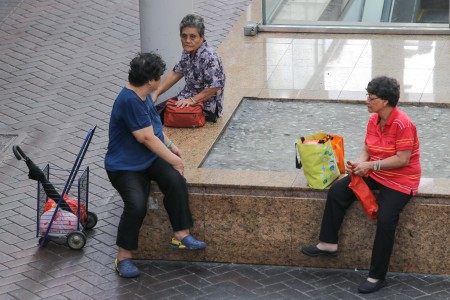The Importance of Socially Engaging the Elderly in Singapore – Lessons from Abroad
August 7, 2018

Singapore has seen a rapidly ageing population in recent years. Those aged 65 years and above made up 14.4% of the population in 2017, with the old age dependency ratio increasing from 12 in 2007 to 18 a decade later. This implies that there are 18 seniors aged 65 years and older per working age population (15-64 years).
The increase in Singapore’s average life expectancy is a double-edged sword. Old age is commonly accompanied with deteriorating health, which may affect the elderly’s ability to participate in social activities. The elderly may have also outlived their spouses, friends or children, and may not have enough retirement funds for personal use. Indeed, this may account for the increase in elderly suicide rates, with 36% of the 361 suicides in 2017 as compared to 29% of the 429 suicides in 2016.
In an editorial to the Straits Times, Dr. Yang Yi (Centre for Family and Population Research / Asia Research Institute) stressed the need to monitor and examine ageing trends to reduce excessive financial and emotional resources for the elderly. Dr. Yang, along with Prof. Jean Yeung and A/P Feng Qiushi (NUS Department of Sociology) studied the impact of social exclusion on cognitive impairment among the elderly in China. Their research, which was carried out in both urban and rural areas in China, demonstrated the importance of social interaction to prevent cognitive impairment which may lead to dementia.
From the study, the researchers developed indicators of social exclusion, such as financial deprivation, social isolation, and lack of basic social services. They determined that elderly who were socially excluded were 1.8 times more likely to have cognitive impairment than those who were not. Dr. Yang further suggested improving the elderly’s financial condition, building elderly-friendly communities to encourage social interaction, and improving access to basic medical services to prevent cognitive impairment and reduce dementia rates.
Read the full article here.
